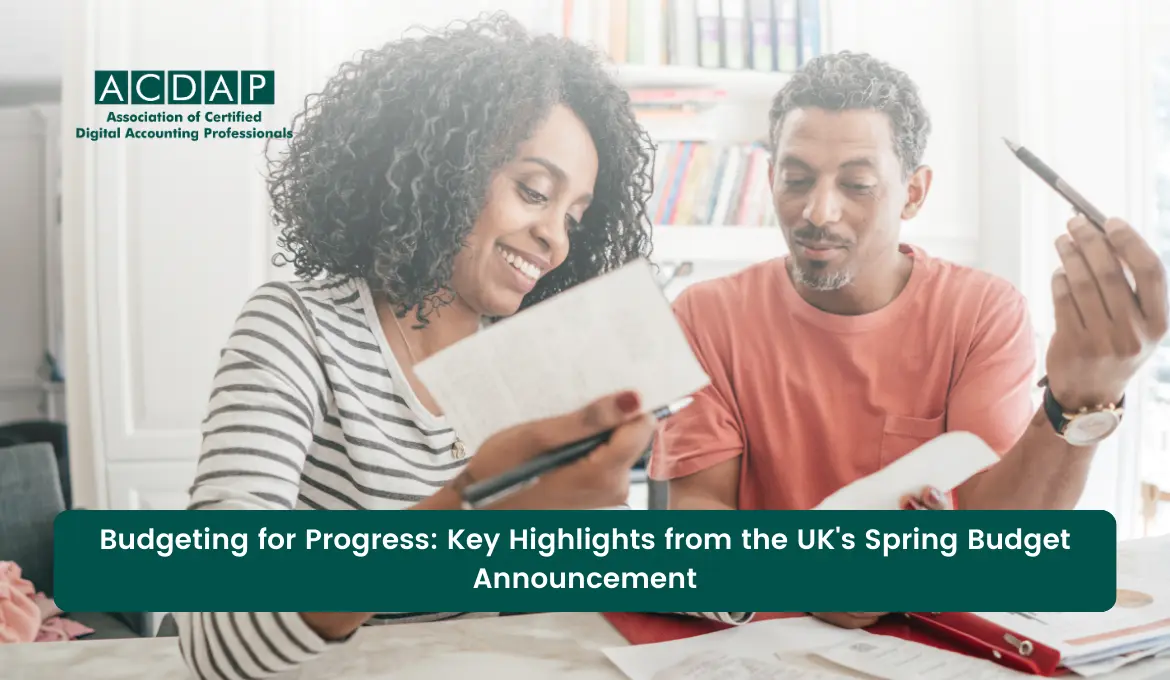The Spring Budget announcement is a pivotal moment in the United Kingdom's fiscal calendar. It sets the tone for economic policy and presents the government's priorities for the year ahead.
This year's budget, presented against challenges like the COVID-19 pandemic and Brexit, carries significant weight as the nation strives to recover and rebuild.
This article will explore the key highlights from the UK's Spring Budget announcement and examine their implications for individuals, businesses, and the broader economy.
Economic Recovery and Support Measures
As the UK continues to navigate the economic fallout from the COVID-19 pandemic, the Spring Budget announcement focused heavily on measures to support recovery and protect livelihoods.
Chancellor Rishi Sunak introduced various support measures to aid individuals and businesses in navigating the challenges and emerging resilient on the other side.
Extension of Support Schemes
One of the headline measures announced in the budget was the extension of crucial support schemes, including the furlough scheme, self-employment income support scheme (SEISS), and business rates relief.
The furlough scheme, which has provided a lifeline to millions of workers throughout the pandemic, will be extended until September 2021, providing continued income support for employees affected by lockdown measures.
Similarly, the SEISS will be extended with two additional grants, providing much-needed support for self-employed individuals whose livelihoods have been impacted by the pandemic.
Additionally, retail, hospitality, and leisure businesses will benefit from extending business rates relief until June 2021, providing vital financial relief to struggling businesses.
Stimulus Measures
The Chancellor announced a range of stimulus measures to boost investment and consumption to stimulate economic activity and drive recovery. These include a temporary extension of the stamp duty holiday until September 2021, which will provide a welcome reprieve for homebuyers and support the housing market.
Furthermore, the budget unveiled a new 'super deduction' tax relief scheme to incentivise business investment. Under the scheme, companies can claim a 130% tax deduction on qualifying investment expenditure, significantly boosting capital investment and productivity.
Investing in the Future: Infrastructure and Innovation
A key theme of the Spring Budget announcement was the government's commitment to investing in infrastructure and innovation to drive long-term growth and prosperity.
Chancellor Sunak announced measures to support innovation, research and development (R&D), and green technologies.
Infrastructure Investment
Infrastructure investment is prominently featured in the budget, with the Chancellor unveiling plans to invest billions of pounds in crucial infrastructure projects across the country.
This includes funding for constructing new roads, railways, and digital infrastructure and investment in green technologies and renewable energy.
The government's ambitious infrastructure agenda aims to create jobs, boost productivity, and drive economic growth in regions across the UK. By investing in infrastructure, the government seeks to lay the foundations for a more resilient and sustainable economy in the years to come.
Innovation and R&D
Innovation and research and development (R&D) were also high on the agenda, with the Chancellor announcing measures to support innovation and entrepreneurship.
These include increased funding for R&D grants and incentives and measures to promote collaboration between businesses, universities, and research institutions.
The government's commitment to fostering innovation and R&D aims to drive productivity growth and enhance the UK's competitiveness on the global stage. By investing in innovation, the government seeks to unlock new growth opportunities and create the industries and jobs of the future.
Building Back Greener: Climate Action and Sustainability
A notable feature of 2024's budget was the government's emphasis on building back greener and accelerating the transition to a low-carbon economy.
Chancellor Sunak announced various measures to support climate action and sustainability, including initiatives to promote renewable energy, green technology, and energy efficiency.
Green Investments
The budget unveiled significant investments in green infrastructure and technology, including funding for renewable energy projects, electric vehicle charging infrastructure, and energy-efficient housing.
The government also announced plans to issue its first green sovereign bond to finance projects that contribute to environmental sustainability.
By prioritising green investments, the government aims to create green jobs, reduce carbon emissions, and drive sustainable economic growth.
The transition to a low-carbon economy is essential for addressing the climate crisis and offers significant opportunities for investment, innovation, and job creation.
The Bottom Line
The UK's Spring Budget announcement represents a crucial milestone in the nation's economic recovery and renewal journey. Against the backdrop of unprecedented challenges posed by the COVID-19 pandemic and Brexit, the government has unveiled a range of measures to support individuals, businesses, and the broader economy.
The budget outlines a comprehensive strategy for extending support schemes, stimulating investment, and promoting sustainability. Its goal is to navigate the road to recovery and build a more robust and resilient economy for the future.
As the nation emerges from the pandemic, the government's commitment to investing in infrastructure, innovation, and sustainability will be vital in driving long-term growth and prosperity. By working together and harnessing the spirit of innovation and enterprise, we can overcome the challenges and build a brighter future for all.


























